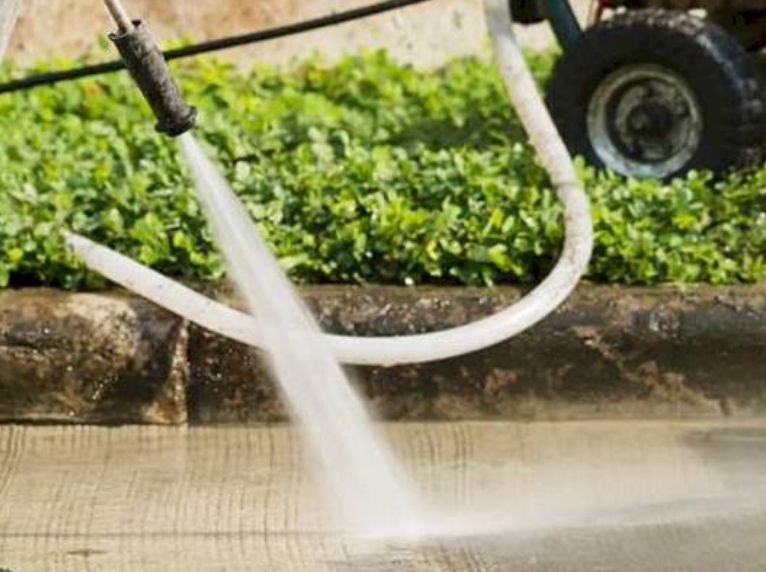Contents
Are you tired of looking at the built-up dirt and grime on your home’s exterior surfaces? Power washing might just be the solution you’re looking for. In this article, we will explore what power washing is, how it works, the different surfaces that can be power washed, the benefits of power washing, the various types of power washing techniques, how often it should be done, and whether or not it is safe. We will provide tips on how to choose a professional power washing service. So, if you want to learn more about revitalising your property and increasing its curb appeal, keep reading!
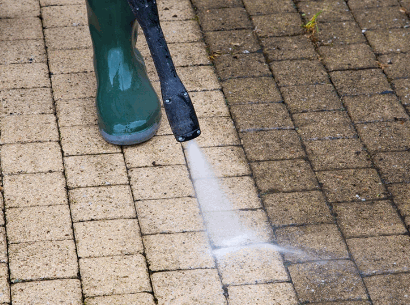
What Is Power Washing?
Power washing is a cleaning method that utilises high-pressure water to remove dirt and grime from various surfaces.
Power washing, also known as pressure washing, is a versatile cleaning technique that uses a specialised machine to generate a powerful stream of hot water. This method is highly effective in eliminating stubborn stains, mould, mildew, and other residues from surfaces such as driveways, decks, fences, cladding, and even outdoor furniture.
- Machine: The power washer machine pressurises water and propels it through a narrow nozzle at high speeds to create a forceful spray.
- Heat: Some power washing machines also have the option to heat the water, enhancing the cleaning power, especially for grease and oil stains.
- Technique: Proper technique is crucial in power washing to avoid damaging surfaces; adjusting the pressure according to the material being cleaned is essential for optimal results.
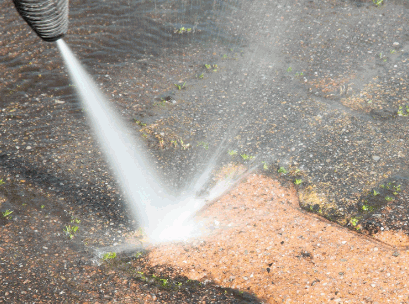
How Does Power Washing Work?
Power washing works by using a high-pressure machine that forces water at elevated pressure onto surfaces, effectively removing dirt and grime.
The key component in a power washing system is the nozzle, which is responsible for directing the high-pressure water onto the surface being cleaned. These nozzles come in various sizes and spray patterns depending on the task at hand. Some power washing units also allow for the use of different products and soaps to enhance the cleaning process. The combination of high pressure and water, along with the help of specialised cleaning agents, ensures thorough and efficient cleaning of various surfaces, from driveways to buildings.
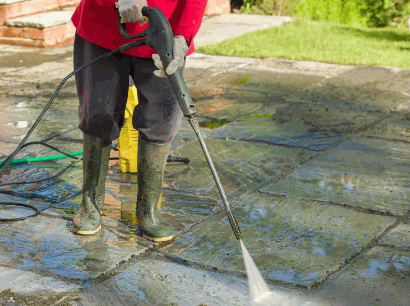
What Surfaces Can Be Power Washed?
Power washing is suitable for cleaning a variety of surfaces including concrete, wood, brick, and vinyl cladding.
Soft washing is particularly effective for delicate surfaces like stucco or painted wood, as it applies lower pressure but still effectively removes grime and dirt.
Whether it’s for the gleaming pavements, pristine decks, or sparkling cladding, power washing can breathe new life into outdoor spaces.
Utilising specialised surface cleaner solutions, power washing not only cleans but also helps prevent mould and mildew growth, extending the longevity of your outdoor surfaces.
Concrete
Concrete surfaces can be efficiently cleaned using power washing, which helps to remove dirt and grime effectively.
One of the specific benefits of power washing is its ability to penetrate deep into the pores of the concrete, ensuring a thorough cleaning that traditional cleaning methods may struggle to achieve. The high pressure combined with the use of hot water also helps to kill bacteria and mould that may be present on the surface.
When undertaking a power washing task, it is crucial to adjust the pressure and techniques according to the surface being cleaned. Using the wrong pressure can damage the concrete or result in ineffective cleaning. It is advisable to hire a professional company that understands the nuances of power washing to ensure the process is carried out effectively and safely.
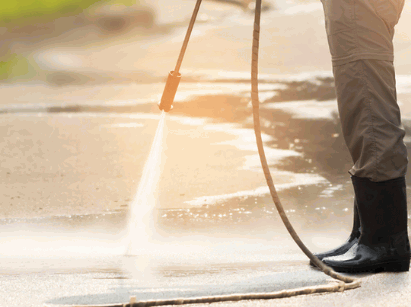
Brick
Brick surfaces can be effectively cleaned using power washing with high pressure, ensuring a thorough removal of dirt and grime.
One of the major advantages of utilising power washing on brick surfaces is its ability to penetrate deep into the porous material, effectively lifting and washing away trapped debris. This method not only restores the appearance of the bricks but also helps prolong their lifespan by eliminating potentially damaging contaminants. Power washing is a time-efficient solution compared to manual scrubbing, making it ideal for large surface areas.
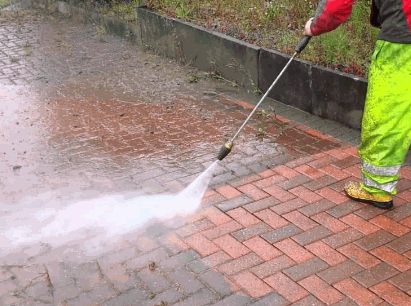
Wood
Wood surfaces benefit from high-pressure washing as it effectively cleans and rejuvenates the appearance of the material.
When high-pressure washing wood, it is crucial to consider the pressure settings and cleaning solutions used. Using a bleach-based cleaner can help eliminate mould, mildew, and other stubborn stains effectively. It is important to adjust the pressure of the high-pressure washer to avoid damaging the wood surface. A soft water system can also prevent any mineral buildup on the wood, ensuring a thorough and gentle cleaning process. By following these tips, you can achieve a beautifully cleaned and refreshed wood surface.
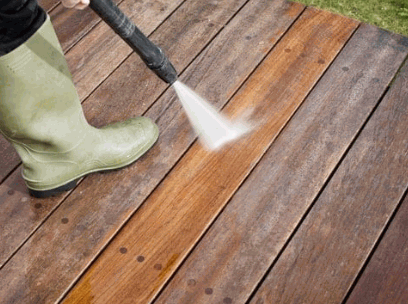
Vinyl Cladding
Vinyl cladding can be efficiently cleaned through power washing techniques, ensuring a thorough removal of dirt and grime from the surface.
One of the main benefits of using power washing on vinyl cladding is the ability to reach large surface areas quickly and effectively. The high-pressure water stream easily dislodges built-up dirt, mould, mildew, and other stubborn pollutants, leaving your home looking fresh and revitalised. A house wash through power washing can also prevent costly repairs by maintaining the condition of your cladding. It is essential to note that when cleaning vinyl cladding, special care must be taken to avoid damaging the material with too high pressure or excessive chemicals, emphasising the importance of seeking professional services for optimal and safe cleaning results.
Learn more: How To Clean External Cladding
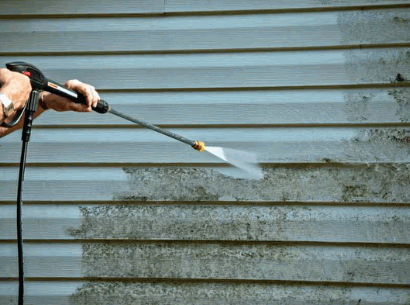
What Are The Benefits Of Power Washing?
Power washing offers numerous benefits, including the removal of dirt and grime from surfaces, and enhancing the appearance of homes and properties.
One of the key advantages of power washing is its ability to efficiently clean various surfaces, such as cladding, driveways, and fences. This method not only improves the overall look of the house but also helps prevent long-term damage caused by built-up debris.
Regular power washing can significantly increase the property value by maintaining its visual appeal and structural integrity. By investing in a professional power washing service, homeowners can ensure their property stands out in the neighbourhood and leaves a lasting positive impression on visitors.
Removes Dirt And Grime
One of the key benefits of pressure washing is its ability to effectively remove dirt and grime from various surfaces, restoring their cleanliness and appearance.
When dirt, mould, mildew, and other contaminants build up on surfaces, they can not only be unsightly but also pose potential health risks.
Pressure washing ensures that these surfaces are not only clean but also free of harmful substances that could cause damage or degradation over time.
It is a preventative measure that helps maintain the integrity of different surfaces, such as driveways, fences, decks, and even outdoor furniture, prolonging their lifespan and enhancing their overall aesthetic appeal.
Increases Property Value
Pressure washing can increase the property value by maintaining a clean and well-kept exterior, attracting potential buyers or tenants.
When the outdoor areas of a property look pristine and well-maintained, it automatically creates a positive impression on anyone interested in purchasing or renting it. The kerb appeal plays a significant role in the overall perception of the property, and with a thorough pressure wash, you can easily enhance this aspect. The investment in pressure washing equipment is relatively small compared to the potential increase in property value. For example, some homeowners have reported a significant increase in resale value after implementing a regular pressure washing routine.
Prevents Damage
Power washing helps prevent damage to surfaces by removing built-up dirt, mould, and other harmful elements that can deteriorate the material over time.
By using high-pressure water sprays, power washing effectively blasts away debris, grime, and stains that have accumulated on surfaces, rejuvenating their appearance and prolonging their lifespan. Technique plays a crucial role in ensuring that the powerful jets of water do not harm delicate surfaces, making it a safe and efficient cleaning method for a variety of materials. Regular power washing maintenance not only safeguards against costly repairs but also enhances the overall aesthetics of homes, driveways, and outdoor spaces.
Improves Curb Appeal
Power washing enhances kerb appeal by giving homes a fresh and clean look, making them more inviting and attractive to visitors or passers-by.
Soft washing, a gentler approach to power washing, is ideal for delicate surfaces like vinyl cladding, ensuring a thorough cleaning without causing damage. The technique involves using low-pressure water combined with biodegradable cleaning solutions to remove dirt, grime, and mould effectively. This not only improves the appearance of the cladding but also helps in maintaining its longevity.
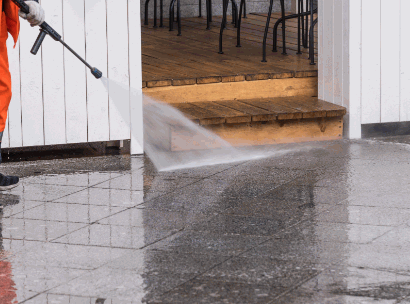
What Are The Different Types Of Power Washing?
There are various types of power washing techniques, including pressure washing, soft washing, hot water power washing, and cold water power washing.
Pressure washing utilises highly pressurised water to tackle tough grime and dirt on surfaces like concrete driveways, brick walls, and decks. It is ideal for heavy-duty cleaning tasks that require significant force to remove stubborn stains.
On the other hand, soft washing involves lower water pressure and specialised cleaning solutions to gently clean delicate surfaces, such as painted wood or vinyl siding, without causing damage.
Hot water power washing is effective for cutting through grease and oil stains because the heated water increases the cleaning power, making it suitable for industrial settings.
Cold water power washing, while not as powerful as hot water, is suitable for regular maintenance cleaning on surfaces like outdoor furniture, windows, and pavements.
Pressure Washing
Pressure washing utilises high-pressure water to clean surfaces effectively, making it ideal for removing tough stains and debris.
When using a pressure washing machine, it’s crucial to consider the surface you are cleaning. This method works wonders on hard surfaces like concrete driveways, brick walls, and metal fences due to its powerful force. It may not be suitable for more delicate materials like wood or certain types of cladding, as the intense pressure can cause damage. The heat and chemicals in some pressure washing products can enhance the cleaning process, but correct application is key to avoid any harm to the surface being cleaned. Technique plays a significant role in pressure washing, ensuring thorough cleaning without causing harm.
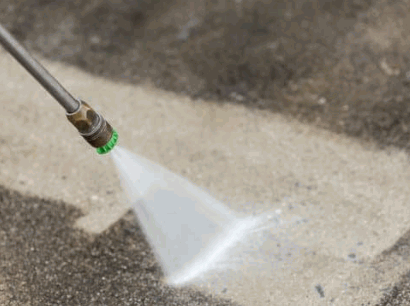
Soft Washing
Soft washing is a gentle power washing technique that uses lower pressure and specialised cleaning solutions to clean delicate surfaces without causing damage.
Unlike traditional power washing, soft washing is ideal for fragile surfaces such as roofs, cladding, and decks, where high-pressure water can cause harm. By utilising the right combination of cleaning solutions and advanced equipment, a professional soft washing company can effectively remove dirt, mould, mildew, and other contaminants without risking surface damage.
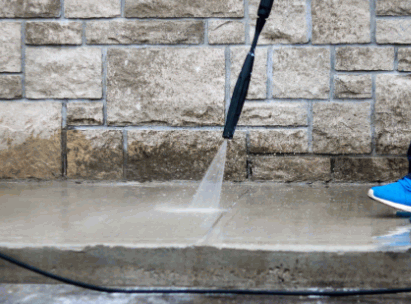
Hot Water Power Washing
Hot water power washing involves using heated water to clean surfaces more effectively, especially for removing grease, oil, and tough stains.
One of the advantages of hot water power washing is its ability to break down stubborn grime and dirt with the help of the high temperature. The heat aids in softening the grime, making it easier to wash away. The use of heated water enhances the cleaning power of detergent or soap, resulting in a more thorough cleaning process. This technique is particularly useful for surfaces such as driveways, pavements, and garden furniture that are exposed to heavy soiling and need intense cleaning.
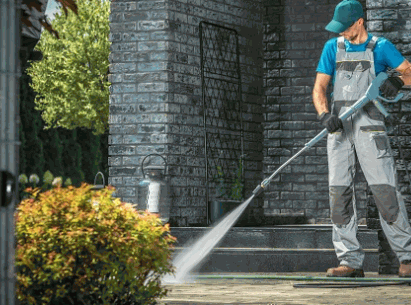
Cold Water Power Washing
Cold water power washing uses unheated water under high pressure to clean surfaces efficiently, suitable for general cleaning tasks where heat is not necessary.
One of the key benefits of utilising cold water power washing is its versatility, making it a cost-effective and environmentally friendly cleaning method. The high-pressure water expelled through specialised nozzles can dislodge grime, dirt, and debris from a wide range of surfaces without the need for additional chemicals. This makes it an ideal choice for cleaning driveways, pavements, decks, and even vehicles. Cold water power washing is gentle enough not to damage delicate surfaces while still providing a thorough cleaning.
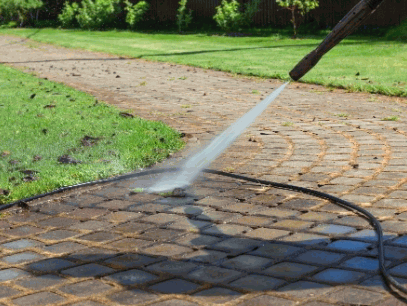
How Often Should Power Washing Be Done?
The frequency of power washing depends on factors like the type of surfaces, environmental conditions, and the level of dirt accumulation, typically recommended annually or bi-annually for most surfaces.
For surfaces exposed to high levels of dirt, such as driveways or decks, a more frequent cleaning schedule may be necessary. Factors like harsh weather conditions, the presence of mould or mildew, and surrounding vegetation can all impact how often you need to power wash.
When deciding whether to tackle the job yourself or hire a professional cleaning service, consider the complexity of the task and the potential risks involved, particularly when using high-pressure washing techniques.
Is Power Washing Safe?
Whilst power washing is an effective cleaning method, there are potential risks such as injury and damage if not used correctly or at excessive pressure.
When operating a power washing machine, it is crucial to avoid directing the high-pressure stream toward delicate surfaces like wood, glass, or painted areas as it can cause irreversible damage. Proper safety gear such as gloves, goggles, and sturdy footwear should always be worn to protect against any potential injuries from flying debris or splashes.
To prevent accidents, it is recommended to test the pressure on a small inconspicuous area first to ensure the machine is set at an appropriate level for the surfaces being cleaned. Maintaining a safe distance from the surface being tackled can help avoid unintentional marks or dents caused by holding the nozzle too close.
Potential For Injury
The use of power washing equipment can pose a risk of injury due to high-pressure water jets, requiring proper training and safety precautions to mitigate accidents.
When operating power washing equipment, it is crucial to be aware of the potential risks associated with high-pressure water, which can cause serious harm if not handled correctly. The force generated by power washers is strong enough to strip away layers of dirt and grime, but it can also penetrate the skin or cause eye damage if directed improperly. To minimise the chances of injury, operators should always wear protective gear such as goggles, gloves, and sturdy footwear to shield themselves from the high-pressure spray.
Potential For Damage
Improper use of power washing can lead to damage on surfaces such as etching, paint removal, or water ingress, emphasising the importance of correct technique and pressure.
One of the common risks associated with power washing is the potential to cause damage to delicate surfaces like cladding or wooden decks. Gentle washing can be a safer alternative for sensitive materials, as it uses lower water pressure to prevent harm. When done incorrectly, power washing can strip away layers of paint, leaving surfaces vulnerable to weathering and decay over time.
How To Choose A Professional Power Washing Service?
Selecting a professional power washing service involves considering factors such as experience, equipment quality, and customer reviews to ensure effective and reliable cleaning for your surfaces.
When looking for a trustworthy cleaning company, qualifications play a significant role in determining their expertise and professionalism. Ensure that the power washing service you choose has proper certification and follows industry standards for safety and quality. Verifying if the technicians are insured is crucial, as it protects you from liability in case of any accidents during the cleaning process.
Consider the materials of the surfaces you need to clean. Different surfaces require specific techniques and pressure levels to prevent damage. A reliable power washing service will assess the materials and tailor their cleaning approach accordingly, ensuring effective results without compromising the integrity of your surfaces.
Whether it’s your outdoor patio, driveway, or cladding, a reputable power washing service will have the right equipment and expertise to rejuvenate these areas effectively. They should understand the unique cleaning requirements of outdoor surfaces and use appropriate techniques to remove dirt, grime, and mould without causing damage.
Consider the usage you need. Whether it’s for routine maintenance or preparation for painting, communicating your specific needs with the power washing service is essential for achieving the desired results. A professional company will work closely with you to understand your expectations and deliver a customised cleaning solution to meet your requirements.
